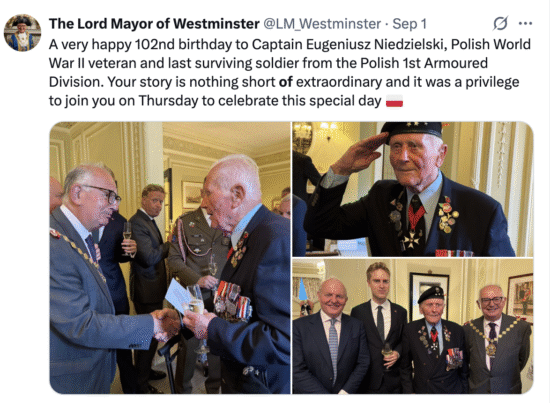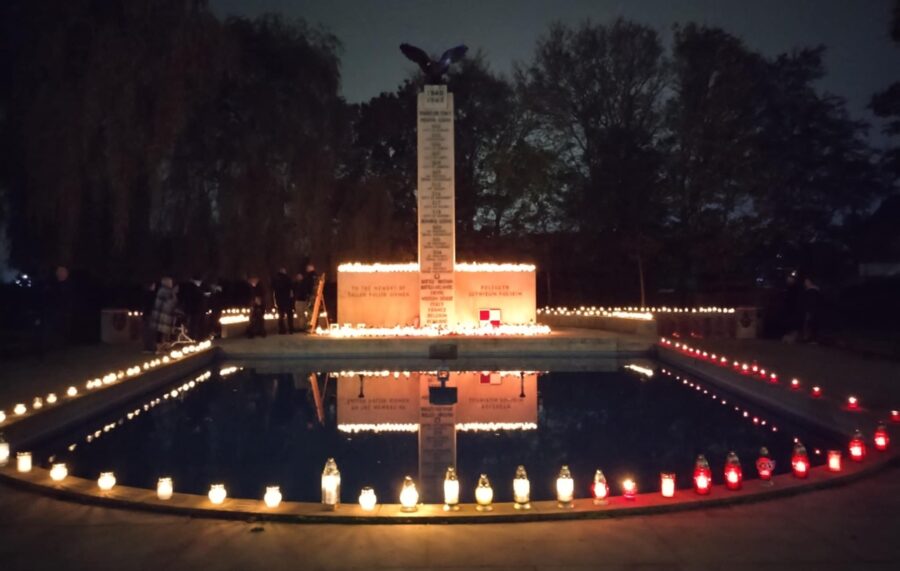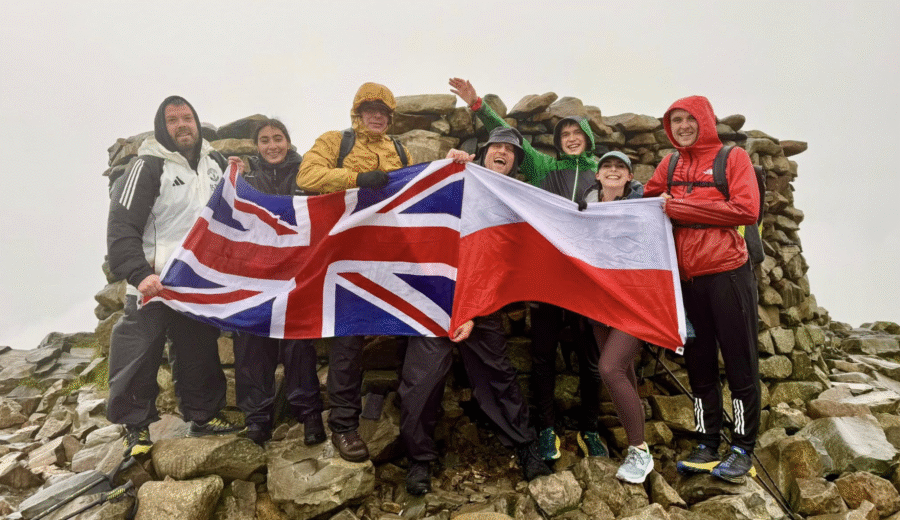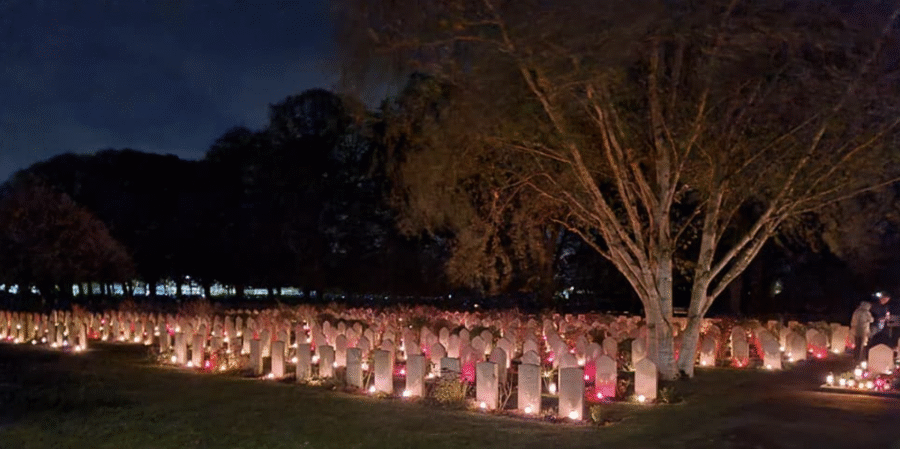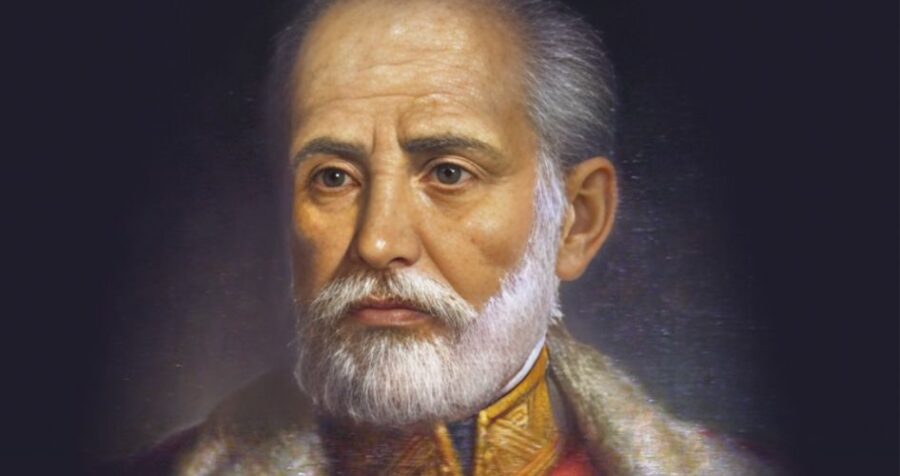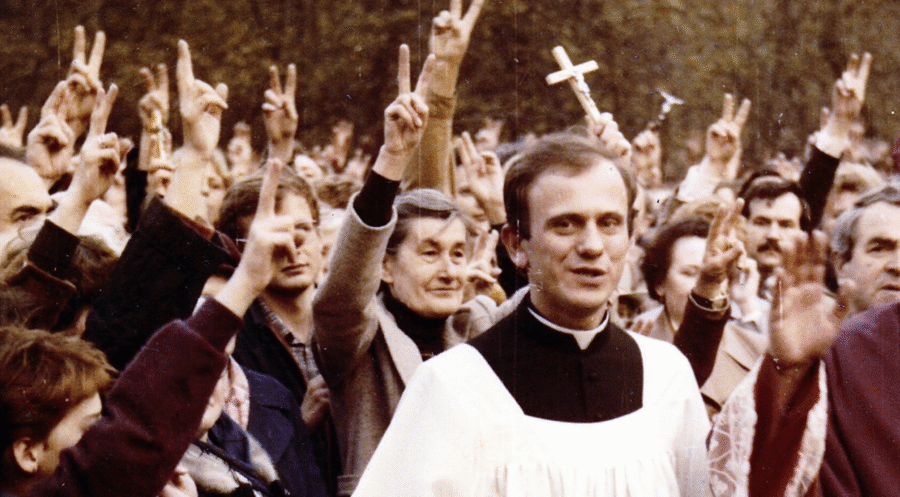On 28 September, a ceremony was held at the prestigious Cavalry and Guards Club on Piccadilly, London, in honour of Captain Eugeniusz Niedzielski on his 102nd birthday. Since the war, Captain Niedzielski has lived in London. He is the last surviving soldier of General Stanisław Maczek and one of the very few living veterans of the Second World War.
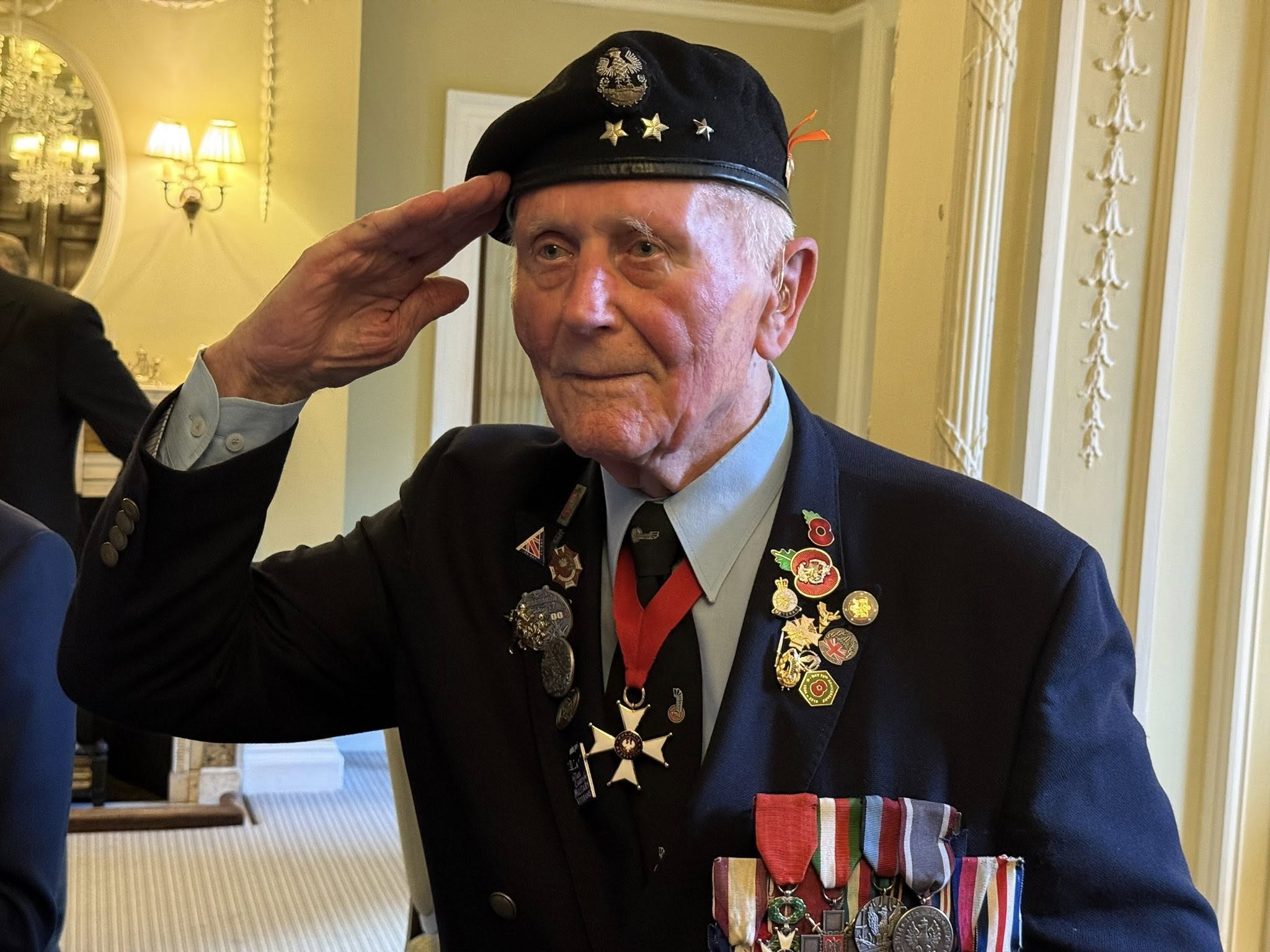
The opening words of welcome were delivered by Brigadier (Ret.) Justin Maciejewski and Lt Col Richard Trant. Many know Brigadier Maciejewski as Director of the National Army Museum. Three years ago, he accepted from British Poles the bust of General Władysław Anders, created by the late Master Andrzej Pityński — an event we covered in our feature The Unveiling of General Anders’ Bust at the National Army Museum in London.
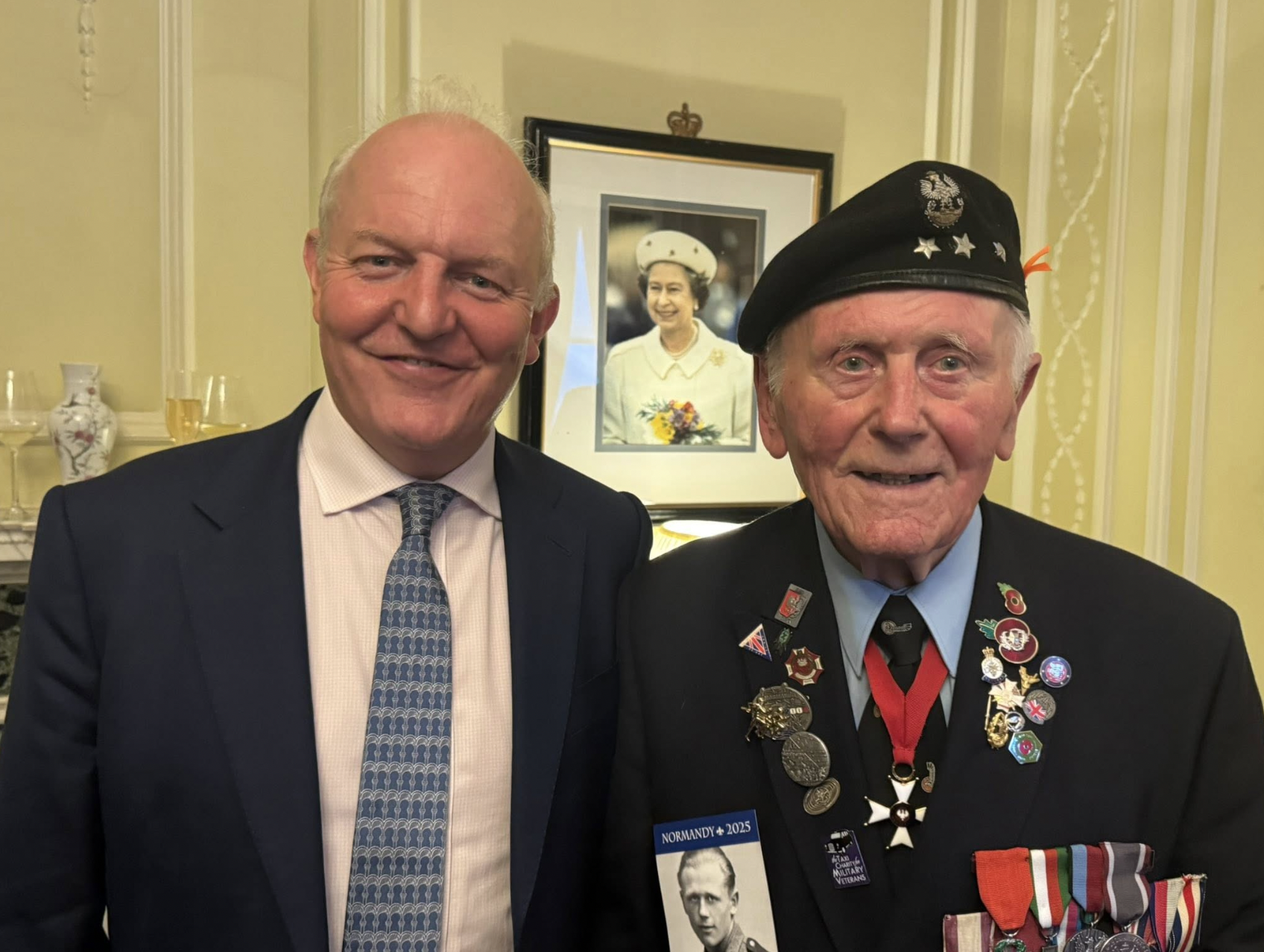
Brigadier Maciejewski warmly greeted the guest of honour and his wife Anna, as well as numerous distinguished guests, among them: General Mieczysław Bieniek, Adviser to the Polish Minister of Defence; Colonel Guy Stone, Chief of Staff of the London District Command; Mark Francois MP, Shadow Defence Minister; Polish Defence Attaché Colonel Rafał Nowak with deputies Colonel Mariusz Piotrowski, Colonel Krzysztof Stolarczyk and WO1 Krzysztof Polak. Also present were the Lord Mayor of Westminster, Cllr Paul Dimoldenberg; Deputy Ambassador of Poland Jerzy Boczkowski; Consul General Renata Kowalska; representatives of the Ministry of Defence, the British Army, military institutions and many eminent guests too numerous to list.
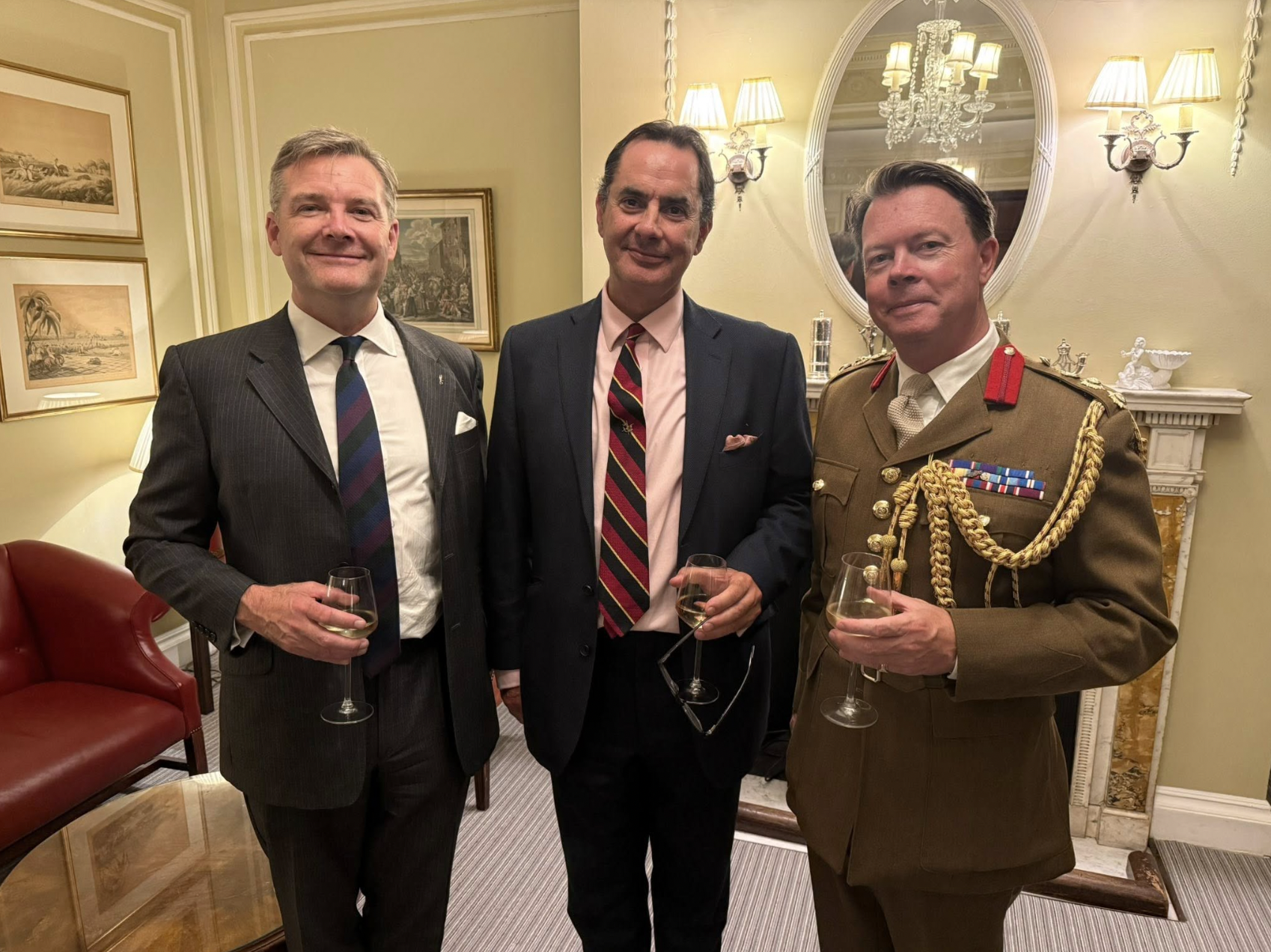
Captain Niedzielski himself then addressed the gathering, recalling wartime experiences:
“The Soviets deported us to Siberia on 10 February 1940 — my mother, my two sisters aged nine and twelve, and myself. They were so little. We had one hour to pack. Under guard, we were taken by sleigh to the station, where a long train of about 20 cattle wagons awaited. They loaded us inside, making a hole in the floor to use as a toilet. We travelled for two weeks in terrible cold. I worked cutting timber. A year later, under the Sikorski–Majski Agreement of 30 July 1941, the Russians announced we were free. They began forming an army. We walked for days to the station, then travelled on to Kazakhstan and Uzbekistan. From there, a train took us to Persia, then on to Palestine. We waited there several months before being loaded onto a ship that, via the Suez Canal, brought us to Durban in South Africa. Volunteers were sought — I signed up. Eventually I reached Scotland, studied at a mechanics’ school, and after a few months was sent to the 10th Armoured Cavalry Brigade under General Maczek.”
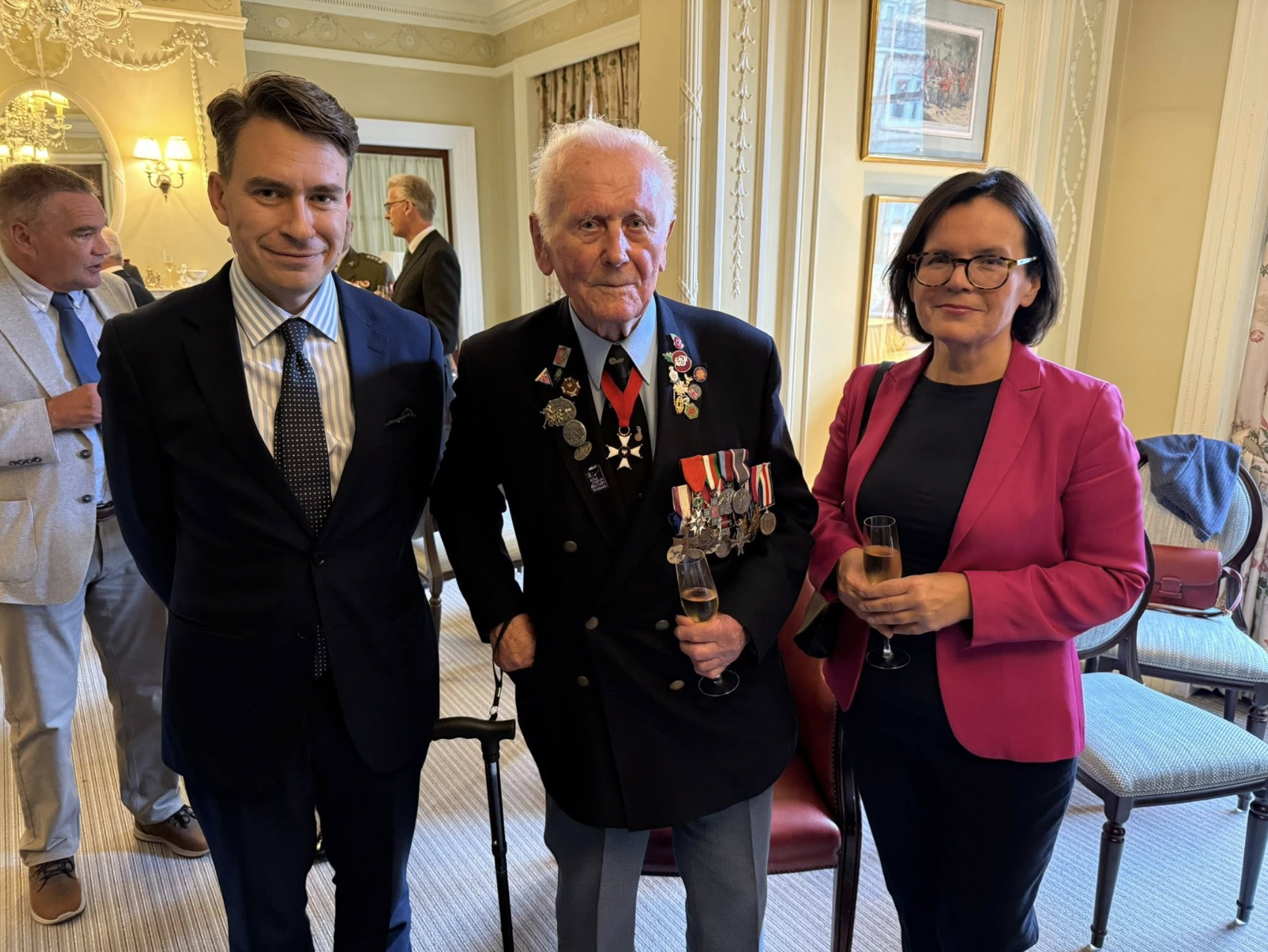
A remarkable lecture on Polish–British wartime cooperation was delivered by Lt General (Ret.) Sir Nick Borton KCB DSO MBE, former Commander of NATO’s Allied Rapid Reaction Corps. He highlighted the major achievements of Poles who supported the Allies in WWII, naming Polish generals, distinguished pilots, and recalling the heroic ORP Błyskawica, which saved the Isle of Wight.
“I had the honour of commanding the 16 Air Assault Brigade alongside the Polish 6th Airborne Brigade, then led by my friend General Adam Joks. I also had the privilege of jumping at Arnhem with Polish soldiers — an extraordinary experience.
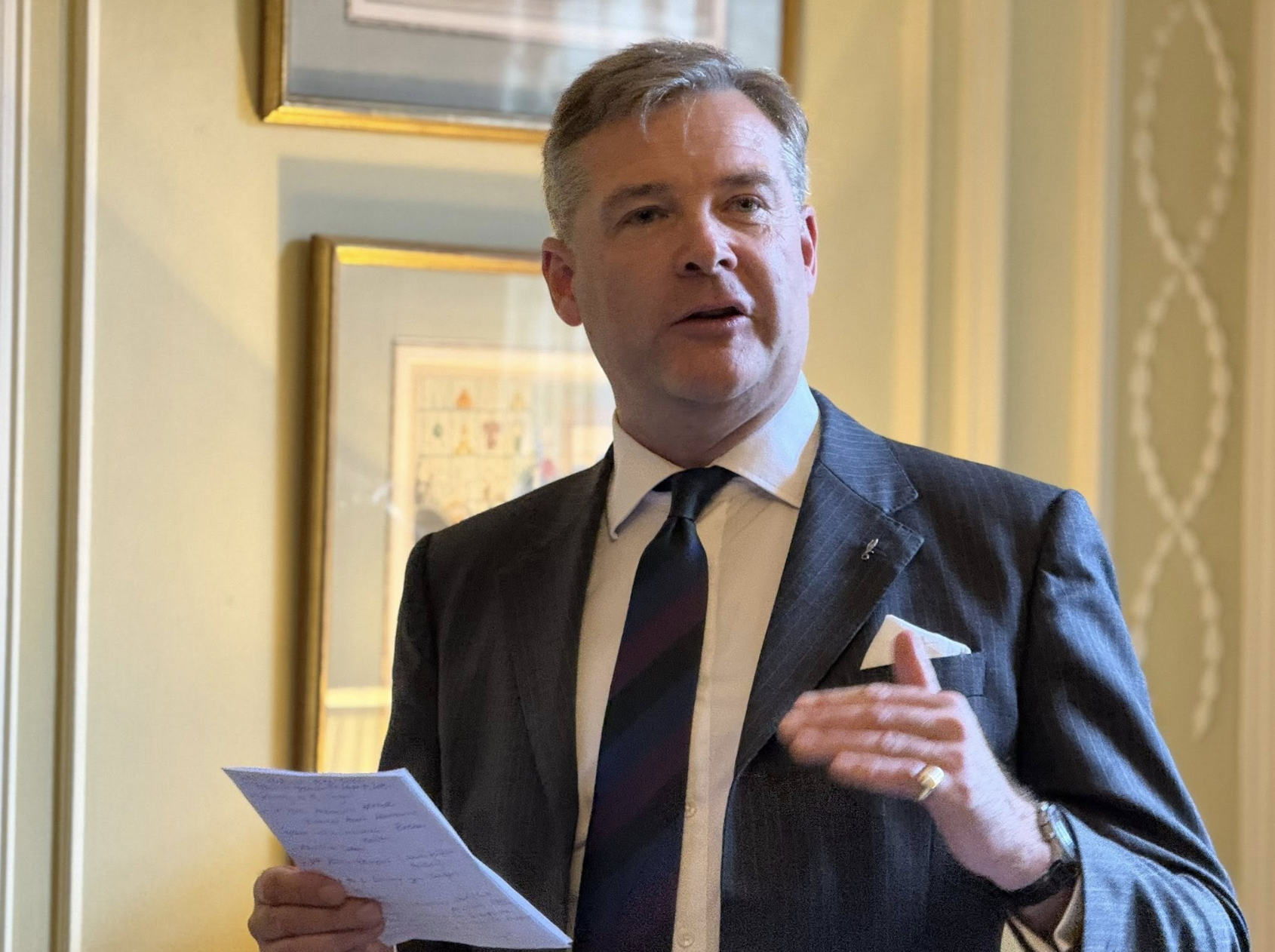
Today Europe faces turbulent times and great challenges. We must strive to anticipate them. The answer, of course, is NATO — provided it functions effectively and we remain loyal to it, as we do working side by side with our outstanding Polish comrades.
It is heartening that Poland has taken on the role of a leader in strengthening Europe’s defence. Our shared history, with all its triumphs and trials, is proof of the strength of our ties.”
The General also read excerpts from a letter written specially for the occasion by Karolina von Leuenberber Maczek, granddaughter of General Stanisław Maczek, recalling the formation of the 1st Polish Armoured Division in Scotland, its landing in Normandy, the pivotal role at Falaise, and the liberation of Breda — celebrated by the Dutch with joyous street festivities and banners reading “Thank you, Poles.”
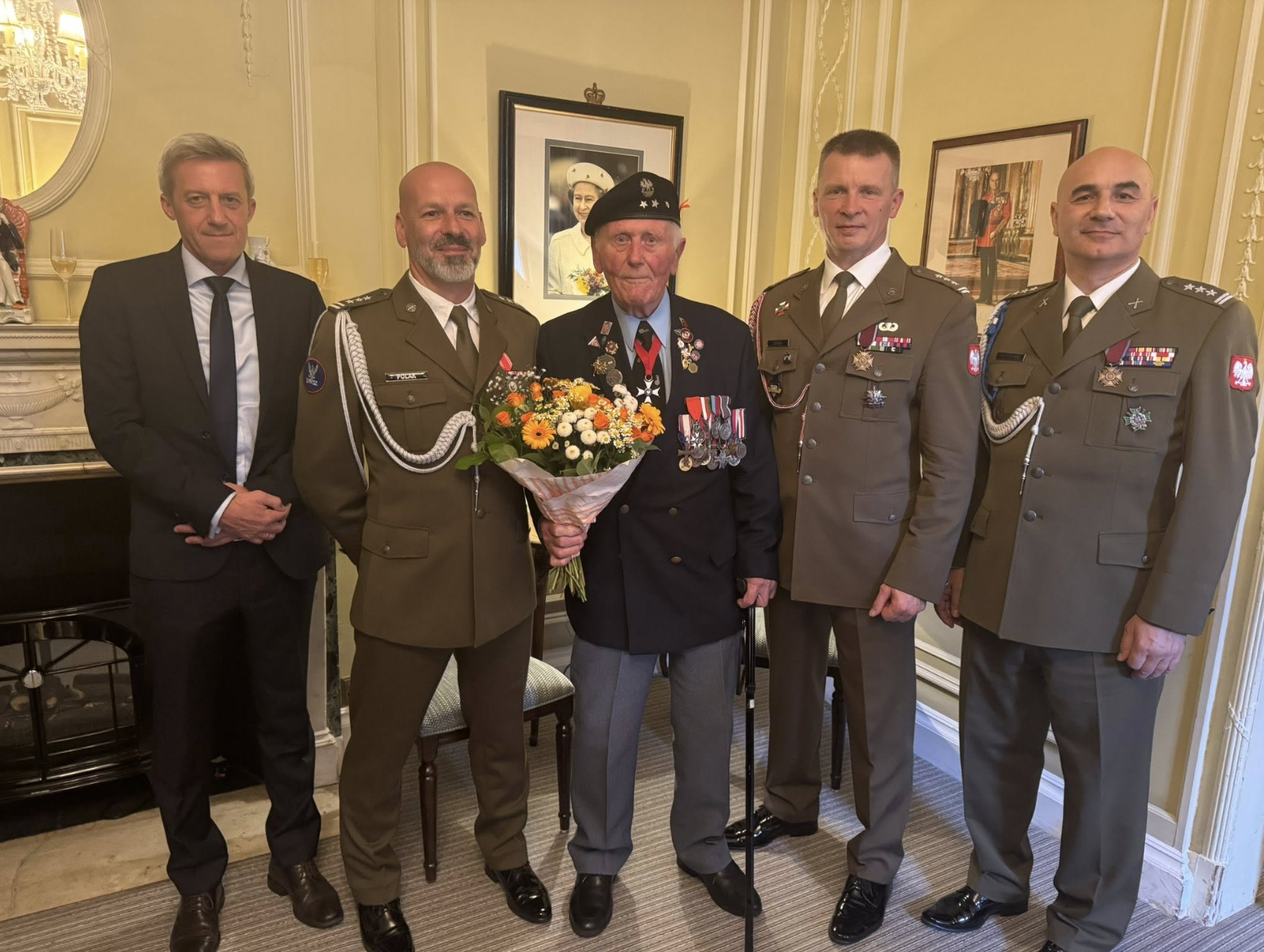
Captain Niedzielski then took the floor again:
“In Scotland, we underwent very intensive training. By the time we went to France we were superbly prepared. In 1944, we were taken to England and from there to the front in France. We landed at Caen in June — ours were the first troops, followed later by the Americans and Canadians. General Maczek told us: ‘We are not fighting for Poland. We are fighting for the free world and a free Europe, because Poland has been betrayed.’ At first, I was a rifleman, but in Caen the tank driver fell ill and went to hospital. Since I held a Scottish driving licence for all military vehicles, I took over the tank and drove it all the way into Germany. We fought from Falaise, through Belgium and the Netherlands, to Wilhelmshaven, where the Germans surrendered.”
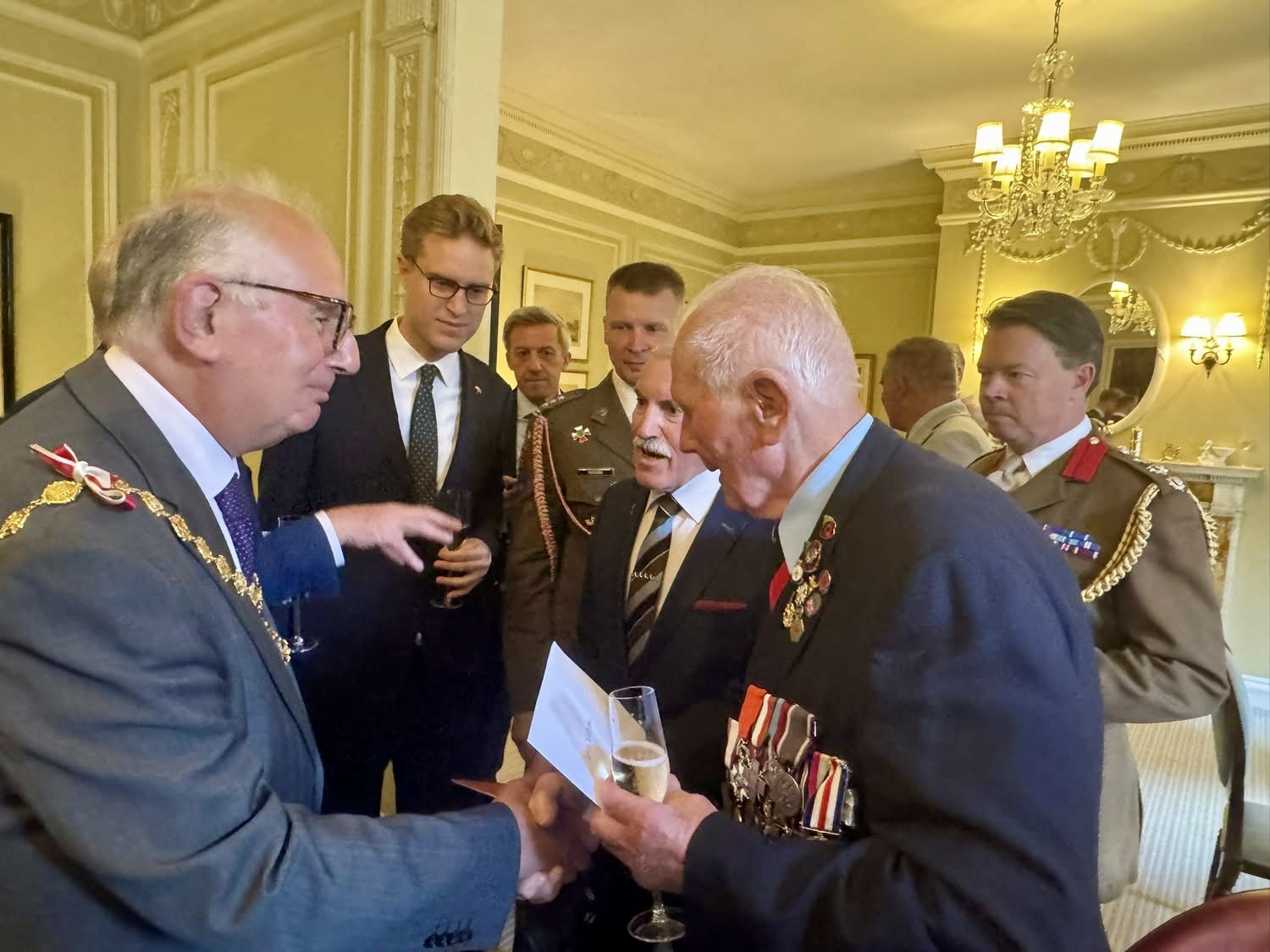
A highlight of the evening was the presentation to Captain Niedzielski of a letter from Poland’s Deputy Prime Minister and Minister of Defence, Władysław Kosiniak-Kamysz. It was handed over by General Mieczysław Bieniek, who flew in especially from Poland:
“Captain Niedzielski fought in battles that changed the fate of nations. The great operation at Falaise was a remarkable achievement. The liberation of Breda was carried out without a single civilian casualty — a rare feat in modern urban warfare. This speaks not only of General Maczek’s military skill and leadership, but also of humanity in uniform. We wish Captain Niedzielski many more years filled with strength, joy and good health.”
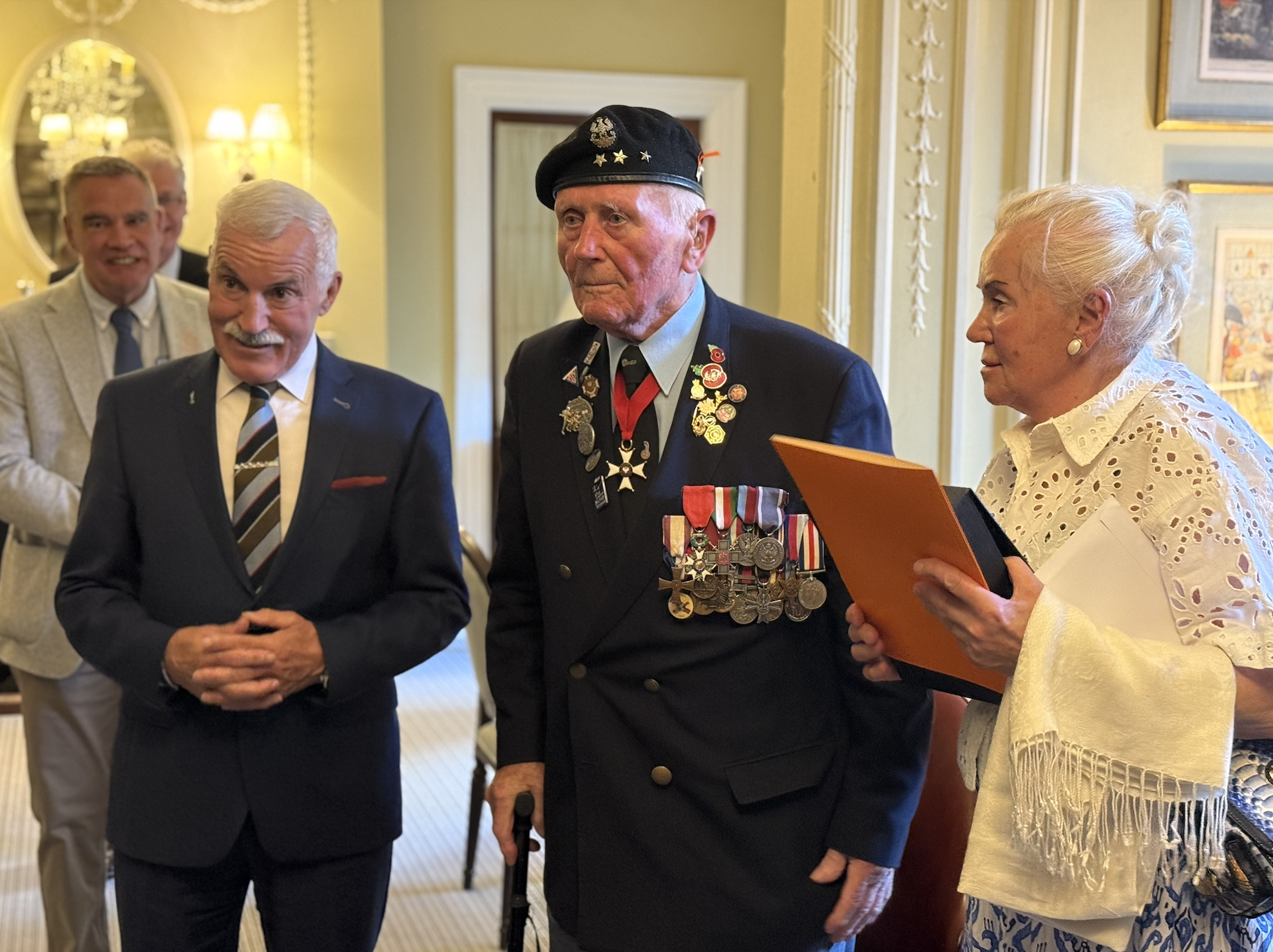
The ceremony was deeply moving. Captain Niedzielski received flowers and many commemorative gifts. For the guests, the presence of the 102-year-old veteran was both an honour and a testament to decades of successful Polish–British cooperation, not only militarily.
Such occasions carry a special meaning. They remind us of the courage and sacrifice of past generations while strengthening our contemporary bonds and friendships. For all present, it was a great honour and source of pride to take part in such a solemn celebration.
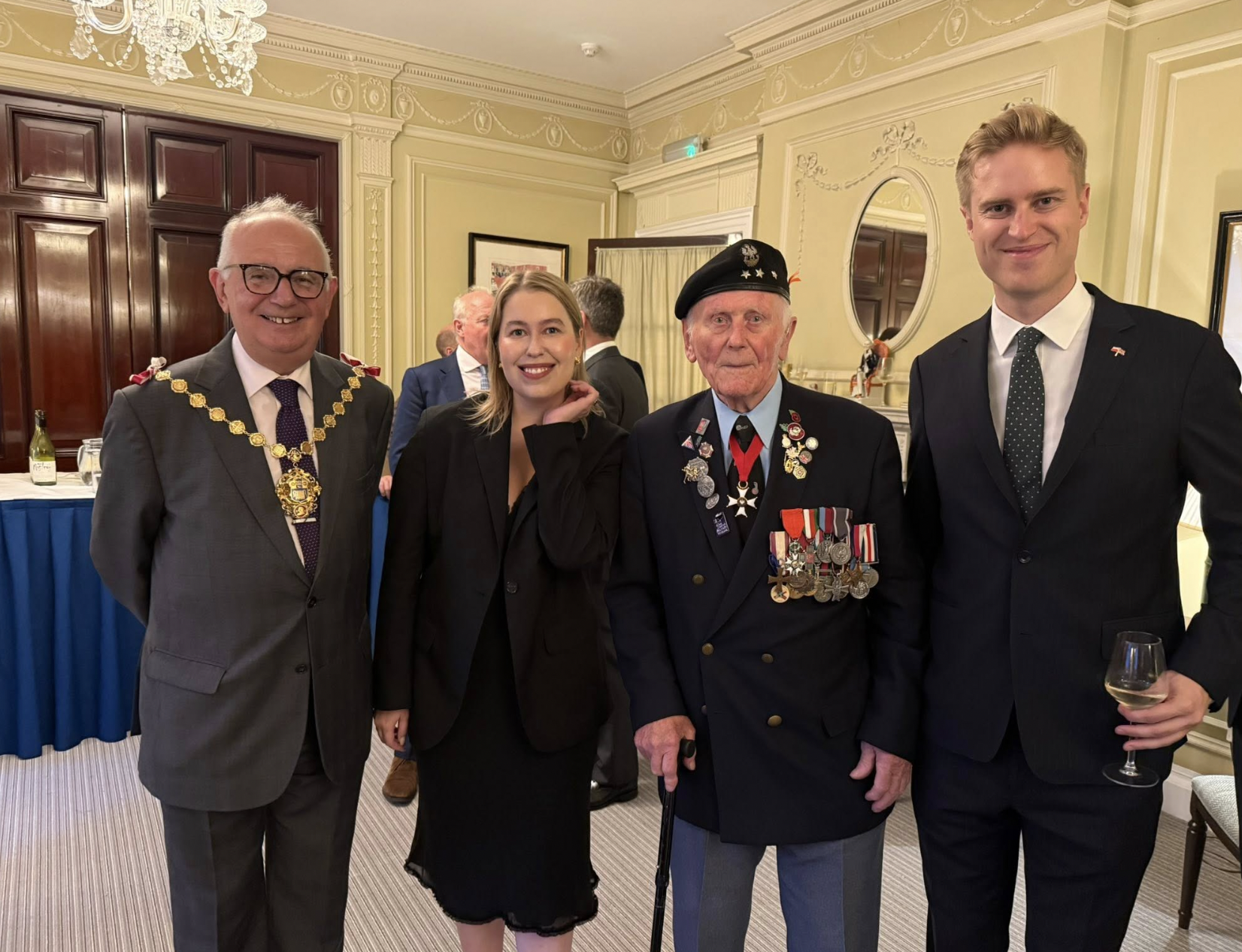
The event was organised by Anders de Wiart Associates, with British Poles as the media patron.
Maria Byczynski
Photos: Caroline Byczynski
If you’d like to learn more about our veteran’s memories of the battle trail with his division, as well as his experiences of life in exile in England, read our interview Captain Eugeniusz Niedzielski, the last surviving soldier of General Maczek, turns 102 years old.



